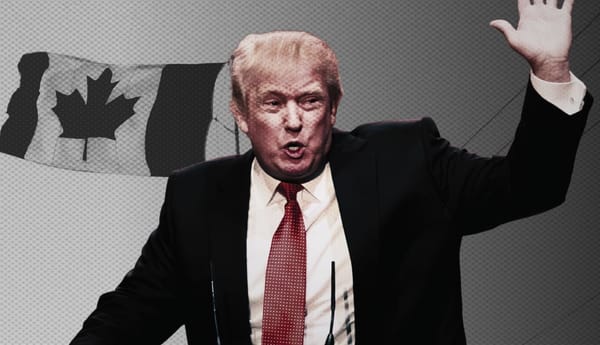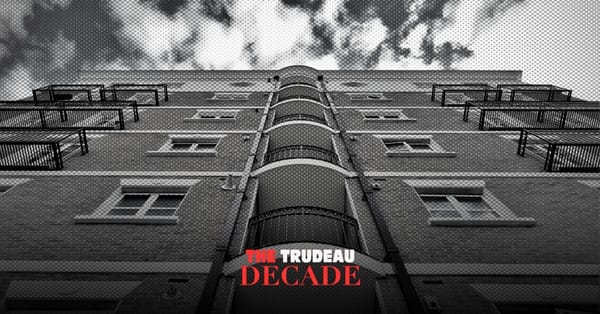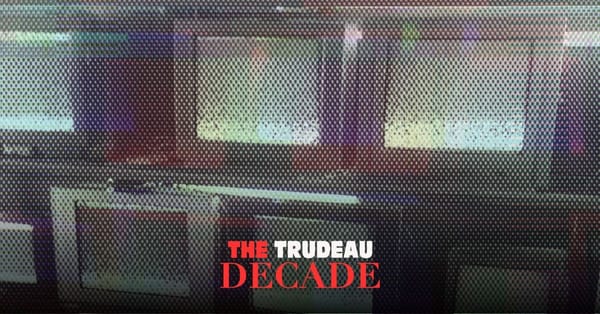Earlier this month, Conservative leader Erin O’Toole unintentionally confirmed what was already pretty obvious: the Conservative plan for getting out of the pandemic begins and ends with the vaccine.
On February 14, the Tory leader tweeted, “There is no end in sight for lockdowns because of the failure to plan the vaccine rollout.”
Yet that is not why lockdowns have been so endless. Again and again, the premiers of the worst-hit provinces — almost all conservatives of some variety — have waited too long to impose public health restrictions, and have been too quick to lift them.
Using the power of government to pay people to stay home during a pandemic, or even just when people are sick, is too much for these leaders. Giving people something might lead them to realize better things are possible.
Ontario Premier Doug Ford, for example, refuses to reinstate a law that would force employers to give paid sick leave, even after medical officers from across the province wrote to him and noted it is the “easiest choice” to fight the pandemic:
With workplaces having been identified as increasingly significant drivers of COVID-19 outbreaks, we agree that one of these options should be to reinstate guaranteed paid sick leave under the Employment Standards Act, to ensure that workers do not have to choose between their livelihoods and following public health directives.
Right now, we’re in an optimistic period of falling case counts and relaxing restrictions. Things are going relatively well, but we aren’t out of the woods yet, particularly as more infectious COVID-19 variants are just sinking their hooks in. Lynora Saxinger, an infectious diseases physician, has said the loosening of health restrictions is “playing chicken with COVID.”
Imposing restrictions before things get out of hand is hard. When things don’t seem that bad, when cases are rising but not out of control, curtailing people’s freedom doesn’t have the same urgency. So instead, the premiers wait until so many people are dropping dead the public is begging to be locked at home. Keeping things closed at the first signs of hope is also difficult.
This isn’t to say lockdowns are enjoyable, or pleasant. But they are one of the measures we have direct control over to get the virus under control. When someone like O’Toole puts such a singular emphasis on vaccines, it lets too many people off the hook for not doing what is necessary.
The vaccines that have been approved are in high demand, and we have little leverage to get deliveries more quickly. Without the ability to produce our own vaccines, we’re at the mercy of the global market. (We’ll put aside for the moment the ethics of demanding instant access to vaccine supplies, while parts of the world are looking at months or years before they get deliveries of any significant quantity.)
If the provinces had decided in the fall to pre-emptively impose restrictions, would the winter have been this brutal? If the goal was not a manageable level of infections, but no infections, would hospitals have been pushed to the brink? Would so many thousands have died? Would we have been forced to stay away from our families over the holidays?
It’s difficult to see any of that happening if hard restrictions had been put in place earlier, when case levels were low and tracking infections was feasible, rather than spiralling out of control.
Look to New Brunswick, where Progressive Conservative Premier Blaine Higgs bucked the trend found elsewhere in the country — the exception that proves the rule. In mid-January, there were 31 new cases of COVID-19 in the province. That was enough for Higgs to close things such as gyms and restaurant dining rooms in more than half of the province. As of February 16, 24 people in N.B. had died of COVID-19.
In the rest of the country, that sort of pre-emptive action has been out of the question, especially once news of the imminent approval of vaccines broke out. The path forward then seemed much easier for premiers. First, it’s the federal government’s job to get doses into the country, so they’re able to blame someone else. Second, it requires the least day-to-day sacrifice from the healthy.
But even here, there are issues. While the premiers complain about slow deliveries from the federal government, the actual administering of the vaccines done by the provinces has been far from faultless. This is particularly true in Ontario, where the province has botched its vaccination count, reporting double the actual number, had long-term care managers jump the queue, and have yet to release a detailed schedule or criteria for the coming months.
Meanwhile, we bounce from week to week with different levels of restrictions while governments try to maintain a “manageable” level of positive cases as they await the magical delivery of vaccines. The whole while we’re either required to stay home isolated from each other, or forced into an unsafe world to keep the gears of the economy grinding us to dust.
O’Toole’s stance is a tacit approval of these reopening plans, and by extension these endless lockdowns. Because to say that the pandemic is as bad as it is for any other reason would discredit conservatives across the country. It would undermine not just the image of the party, but much of the conservative political project.
When Alberta Premier Jason Kenney talks about the mental health crisis during the pandemic, he’s using it as a shortcut to do the easy thing and limit restrictions, because keeping them going is hard.
“To tell small business owners that they may be shut indefinitely, to give them no path or sense of hope, leads to even greater despair,” Kenney said in late-January. “We have to give, I think, a measured path that is safe but also presents a sense of hope.”
These measured paths have ended in disaster already, but we’ll give them a try again because the vaccine will be here soon enough, right?
So it’s good of O’Toole to just go ahead and say out loud what his plans for pandemic management are: nothing. Forget financial supports, forget national long-term care standards, forget anything but putting all our faith in big pharma to bail out the poor decision making of so many conservatives.
O’Toole’s tweet came with a graphic, promising “certainty and competent leadership.” What he’s promising is hardly competent. But it does provide its own version of certainty: The certainty that under a Conservative federal government, things are sure to be worse.






